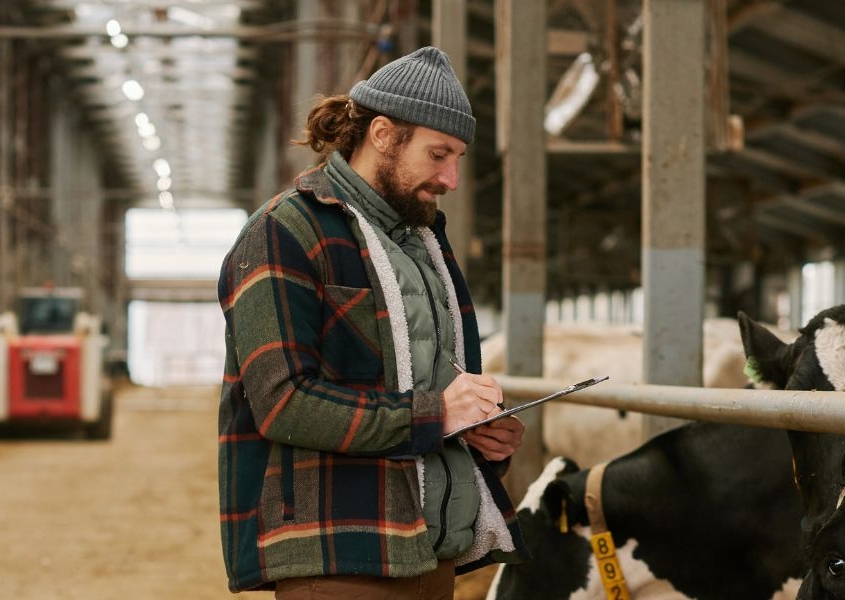Running a farm is a complex and demanding responsibility, filled with numerous tasks that need constant attention. Farm owners often find themselves juggling everything from managing crops and livestock to handling finances and ensuring that machinery is working properly. This multitude of responsibilities can be overwhelming, and delegating tasks to farm hands becomes a necessity. However, delegation itself can be a source of stress.
When farm owners delegate tasks, they remain responsible for the outcomes, which brings a sense of urgency and pressure. The goal is to enable farm hands to make decisions and work autonomously without constant supervision, freeing the farm owner to focus on strategic decisions and other critical areas. Farm owners must build trust, establish clear communication, and implement effective systems to achieve this balance.
Building Trust and Teamwork on Your Farm
Trust is the cornerstone of a productive and efficient farm. Farm owners need to trust their farm hands to complete tasks competently and on time. Building this trust is a two-way street; it involves clear expectations, consistent performance check-ins, and open communication.
Farm hands earn the trust of their employers by demonstrating reliability, organisation, and the ability to handle responsibilities without needing constant oversight. Farm owners, on the other hand, must provide the tools, training, and autonomy necessary for farm hands to succeed. When both parties trust each other, the entire operation runs more smoothly and efficiently.

Tips for Farm Owners to Build Trust and Teamwork
1. Implement Task Management Systems:
Use systems to delegate and track tasks effectively. This is essential to provide clarity and help farm hands understand their responsibilities and deadlines. Such a system should contain details of the assigned tasks, due dates, and progress status. Get some inspiration as to how to leverage Task Management Systems from our overview course, available for our clients. You may also explore other tools like Smartsheet, Trello, Asana, and Monday.com.
2. Develop Systems for Operations:
Create and maintain comprehensive systems for all farm operations, including planting schedules, maintenance routines, and daily tasks. A well-structured system reduces the need for constant supervision and allows farm hands to work more autonomously. For our Farmers’ Time-Freedom Program clients, check out the following trainings to help you get started on systems and get your team onboard:
- Fundamentals of ‘Systems Approach’ (For Management)
- Introducing ‘Systems Approach’ to Team Members
- Fundamentals of ‘Systems Approach’ (For Team Members)
You may also check out this simple systems template to get started.
3. Give Responsibility:
Assign your farm hands responsibilities and trust them to handle these tasks. Provide regular feedback, appreciate their good work, and address issues constructively. When farm hands, or people in general, are trusted with more responsibility, they take pride in the trust you have for them and they’ll do their job well. Empowering your team with autonomy and responsibility fosters a more vibrant and motivated work environment.

Tips for Farm Hands to Build Trust and Teamwork
1. Plan and Organise:
Effective planning is crucial. Farm hands should prioritise their tasks and manage their schedules to meet deadlines without constant reminders from their bosses. Being organised means having a clear plan for the day, the week, and beyond. Giving your managers the confidence that no assigned tasks fall through the cracks.
2. Adapt to Changes:
Farm hands should quickly learn and adapt to new systems, methods, and technologies, showing their ability to handle new challenges and responsibilities.
3. Proactive Communication:
Farm hands must keep managers or farm owners informed about progress and potential delays. Proactive communication builds trust and shows that farm hands are responsible and dependable. Informing the boss of a potential issue early is better than letting it become a major problem.
Clear systems, good communication, and trust help farm hands step up and make the work environment more harmonious and stress-free. This process is cyclical: putting systems in place, assigning responsibilities, building trust, and providing feedback. In this process, understanding your team’s communication styles and preferences can help you give positive feedback and constructive criticisms effectively. Download our free resource on 5 Love Languages for Farm Teams for more ideas.
Share this blog with your farm team members or read it together, discuss the strategies, and establish a structured plan to implement them. By implementing these strategies, farm owners can ensure their farm runs smoothly and efficiently, with a motivated and autonomous team ready to tackle any challenges that come their way. This continuous loop of empowerment and trust leads to ongoing improvement and a more successful farming operation. Book a call with one of our experienced consultants now.
If you found this article helpful, share it with your network to help others unlock their farming potential. Don’t forget to like and follow us on social media for more insightful tips: Facebook, Instagram, and LinkedIn. Let’s empower more farmers together!


